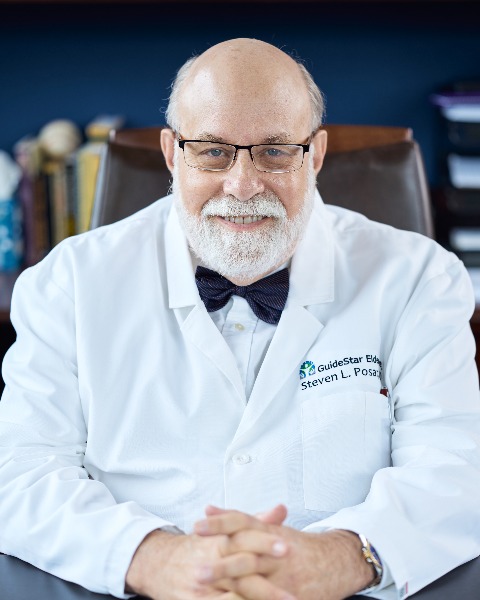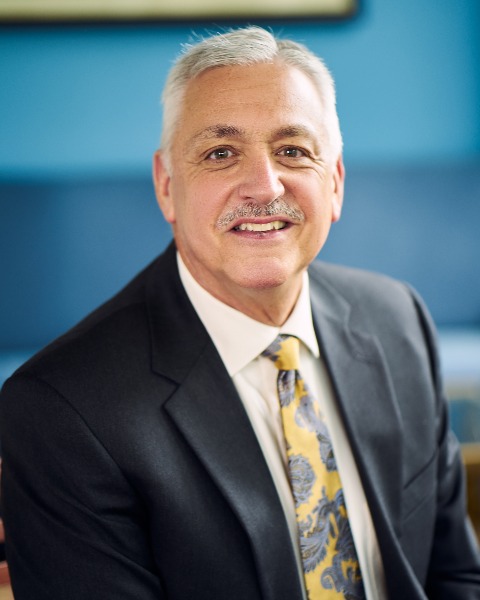New Concepts in Antipsychotic Stewardship
1.75 CME / 1.75 CMD Management / 1.75 MOC
This session will present a recent study, that demonstrates that the Antipsychotic Stewardship Program that was developed in conjunction with Indiana's largest SNF operator shows highly material reduction in the antipsychotic rate. This was achieved through an active IDT approach between facility management, social service members, staff, and the primary care team. The core was an integrated behavioral health delivery system, encompassing neurology, psychiatry, consultative gerontology, and clinical psychology. We will present the key components structurally and practically, to the program, with time for Q/A.
Learning Objectives:
- List the two goals of the National Partnership to Improve Dementia Care in Nursing Homes.
- List two barriers that contribute to lack of antipsychotic reduction in nursing homes.
- Describe how accurate diagnosis is imperative to reducing antipsychotic rates in nursing homes.
- Describe how the interdisciplinary team approach benefits antipsychotic rate reductions in nursing homes.
Presenters:
 Anita Reid, MSN, is the Senior VP of Nurse Practitioner Services at GuideStar Eldercare, a national leader in the neurology-forward approach to the behavioral care of neurocognitively impaired residents in long-term care. She is a past presenter and poster judge at PALTC, and has had joint research presented at AAIC. Current roles include incorporating and maintaining Age-Friendly Recognition, Joint Accreditation and working with Indiana University and Regenstrief Institute on groundbreaking LTC research for this marginalized population. Creating strong alliances with heatlhcare partners to advocate for the neruocognitively impared is a passion that is taking shape in a new co-developed Neurpsychiatric Doctoral program at St. Mary's of Notre Dame.
Anita Reid, MSN, is the Senior VP of Nurse Practitioner Services at GuideStar Eldercare, a national leader in the neurology-forward approach to the behavioral care of neurocognitively impaired residents in long-term care. She is a past presenter and poster judge at PALTC, and has had joint research presented at AAIC. Current roles include incorporating and maintaining Age-Friendly Recognition, Joint Accreditation and working with Indiana University and Regenstrief Institute on groundbreaking LTC research for this marginalized population. Creating strong alliances with heatlhcare partners to advocate for the neruocognitively impared is a passion that is taking shape in a new co-developed Neurpsychiatric Doctoral program at St. Mary's of Notre Dame.
 Steven Posar, MD, is the founder and CEO of the leading neurobehavioral LTC practice in the United States. He has built a career as a national expert in systems of care advantaging the frail elderly. As former Medical Director of Blue Cross of California, and Medical Director of Cigna Health Plans of Los Angeles, he has pioneered innovative approaches to improve the clinical status of these patients. Recently, he was appointed the Clinical Professor of Geriatric Neuropsychiatry at St. Mary's of Notre Dame, IN.
Steven Posar, MD, is the founder and CEO of the leading neurobehavioral LTC practice in the United States. He has built a career as a national expert in systems of care advantaging the frail elderly. As former Medical Director of Blue Cross of California, and Medical Director of Cigna Health Plans of Los Angeles, he has pioneered innovative approaches to improve the clinical status of these patients. Recently, he was appointed the Clinical Professor of Geriatric Neuropsychiatry at St. Mary's of Notre Dame, IN.
 Daniel Heiser, PsyD, is the Senior VP of Behavioral Health for GuideStar Eldercare Medical Group. He has spent over 15 years specializing in the behavioral treatment of older adults diagnosed with Dementia who reside in long-term care settings. His current focus for GuideStar includes: • Education and Training for Long-term Care Facility staff regarding the management and treatment of behavioral issues in older adults with Dementia • Research and Publication regarding the treatment of older adults with Dementia residing in Nursing Homes • Development of new markets for GuideStar’s expansion into new markets
Daniel Heiser, PsyD, is the Senior VP of Behavioral Health for GuideStar Eldercare Medical Group. He has spent over 15 years specializing in the behavioral treatment of older adults diagnosed with Dementia who reside in long-term care settings. His current focus for GuideStar includes: • Education and Training for Long-term Care Facility staff regarding the management and treatment of behavioral issues in older adults with Dementia • Research and Publication regarding the treatment of older adults with Dementia residing in Nursing Homes • Development of new markets for GuideStar’s expansion into new markets
Credit Information:
Activity Created 3/2023
Credits Available Until 3/2026
- 1.75 CME
- 1.75 CMD Management
- 1.75 MOC
Credit Statements:
CME: AMDA – The Society for Post-Acute and Long-Term Care Medicine designates this enduring material for a maximum of 1.75 AMA PRA Category 1 Credit(s)TM. Physicians should only claim credit commensurate with the extent of their participation in the activity.
AMDA – The Society for Post-Acute and Long-Term Care Medicine for Post-Acute and Long-Term Care Medicine is accredited by the Accreditation Council for Continuing Medical Education (ACCME) to provide continuing medical education for physicians.
CMD: This self-study activity has been pre-approved by the American Board of Post-Acute and Long-Term Care Medicine (ABPLM) for a total of 1.75 management hour(s) toward certification or recertification as a Certified Medical Director (CMD) in post-acute and long-term care medicine. The CMD program is administered by the ABPLM. Each physician should claim only those hours of credit actually spent on the activity.
ABIM Maintenance of Certification (MOC): Successful completion of this CME activity, which includes participation in the evaluation component, enables the participant to earn up to 1.75 Medical Knowledge MOC points and patient safety credit in the American Board of Internal Medicine’s (ABIM) Maintenance of Certification (MOC) program.
Participants will earn MOC points equivalent to the amount of CME credits claimed for the activity. It is the CME activity provider’s responsibility to submit participant completion information to ACCME for the purpose of granting ABIM MOC credit.
Visit the Continuing Education page for information on if and how you can claim credit/hours for AMDA’s education.
Disclosure Information:
The Society requires the disclosure of all speaker/faculty/planner’s relevant financial relationships; presence of off-label use of a device or medication; and discussion of any experimental, new or evolving topic prior to each accredited education activity.
If the learner perceives any bias toward a commercial product or service, advocation of unscientific approaches to diagnosis or therapy, or recommendation, treatment, or manners of practicing healthcare that are determined to have risks or dangers that outweigh the benefits or are known to be ineffective in the treatment of patients please report this to the Society’s staff.
- Julie Gammack, MD, CMD (Planner & Speaker): Stockholder: Amarin
- Kenya Rivas Velasquez, MD, CMD, FAAFP (Planner & Speaker): OptumRx: Stockholder
- All other planners, speakers, and AMDA staff have no relationships with ineligible companies.
All relevant financial relationships have been identified and mitigated.